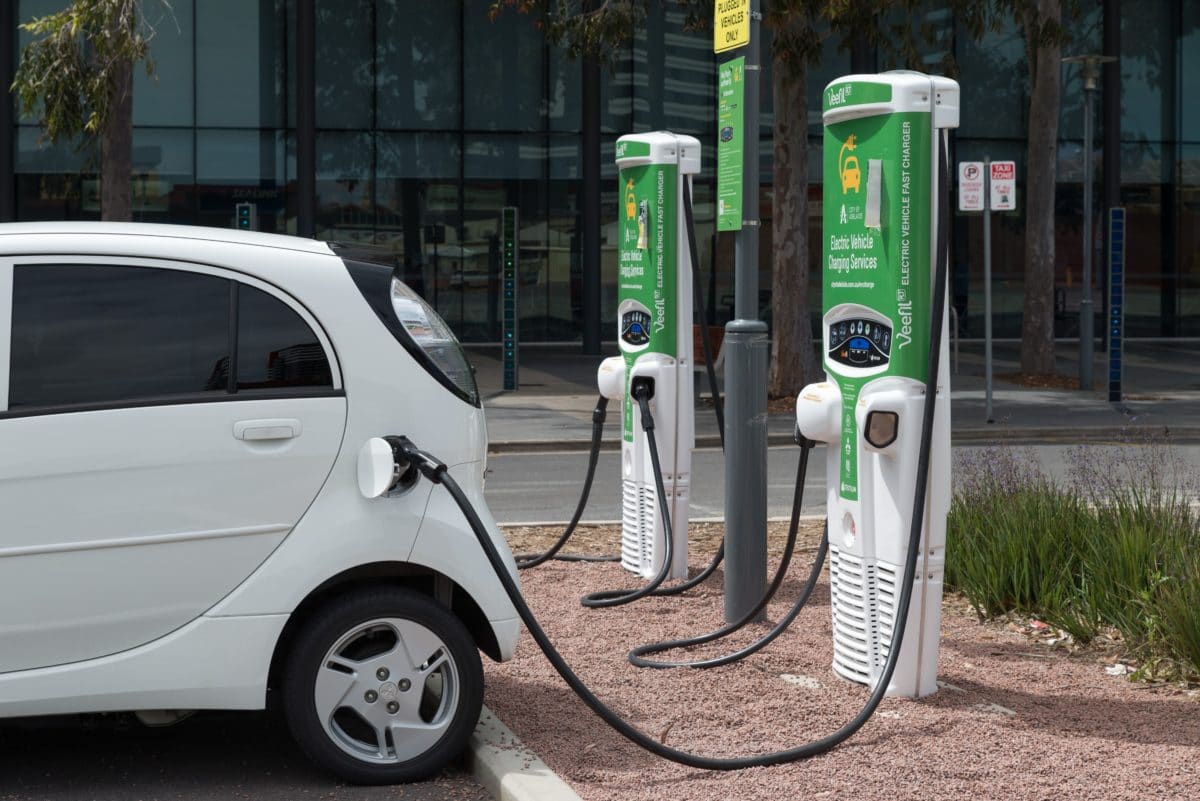When the Australian Government finally extended the Australian Renewable Energy Agency’s (ARENA) funding by $1.4 billion in September 2020, it was also announced that $70.2 million of that funding would go toward the Future Fuels Fund (FFF). Today, ARENA announced the official launch of the FFF with a budget of $71.9 million and the aim of flattening out the speedbumps in the road to new vehicle technology.
In the first round of this funding’s allocation, the effort to lay out a public fast charging infrastructure network for battery electric vehicles (BEVs) will see a $16.5 million boost. EVs only make up 0.6% of new vehicle sales in Australia, lagging well behind many other developed nations, and one of the reasons the adoption of EVs has been so low in Australia is a lack of a reliable charging network.
This money will go toward the roll out of fast charging stations (50 kW and above) throughout eight regions nationwide, including each Australian capital city and regional centres including the Sunshine Coast, Gold Coast, Newcastle, NSW Central Coast, Wollongong and Geelong.
All applicants for this first round of funding must be able to cover these key geographic regions, show that charging stations are powered by renewable energy, maximise private sector investment and deliver the infrastructure within two years.
The spread of fast charging stations is hoped to increase consumer choice and encourage the uptake of BEVs against the range-anxiety that still hampers their uptake. According to an ARENA statement, industry consultation suggested that the lack of public fast charging stations in population centres was a “key barrier to uptake of BEVs for both the public and fleets.”
ARENA CEO Darren Miller said the FFF will help businesses and regional communities take advantage of opportunities offered by new vehicle technologies across battery electric, hydrogen fuel cell and biofuels.
“Through this initial round,” said Miller, “we are addressing one of the barriers to roll out of new vehicle technologies by significantly increasing the number of fast charging stations available to consumers across Australia, and reducing charging blackspots in both metropolitan and regional centres.”
“As electric vehicles continue to become more competitive,” Miller continued, “it is important we have the recharging infrastructure in place to give motorists confidence they can choose an EV and recharge it conveniently and cost effectively.”
Applications for the first round of funding closes on Tuesday 6 April 2021. Further rounds of funding will place later this year, including efforts to aid the transition of business fleets as well as in the hydrogen and biofuel sectors.
This content is protected by copyright and may not be reused. If you want to cooperate with us and would like to reuse some of our content, please contact: editors@pv-magazine.com.









By submitting this form you agree to pv magazine using your data for the purposes of publishing your comment.
Your personal data will only be disclosed or otherwise transmitted to third parties for the purposes of spam filtering or if this is necessary for technical maintenance of the website. Any other transfer to third parties will not take place unless this is justified on the basis of applicable data protection regulations or if pv magazine is legally obliged to do so.
You may revoke this consent at any time with effect for the future, in which case your personal data will be deleted immediately. Otherwise, your data will be deleted if pv magazine has processed your request or the purpose of data storage is fulfilled.
Further information on data privacy can be found in our Data Protection Policy.